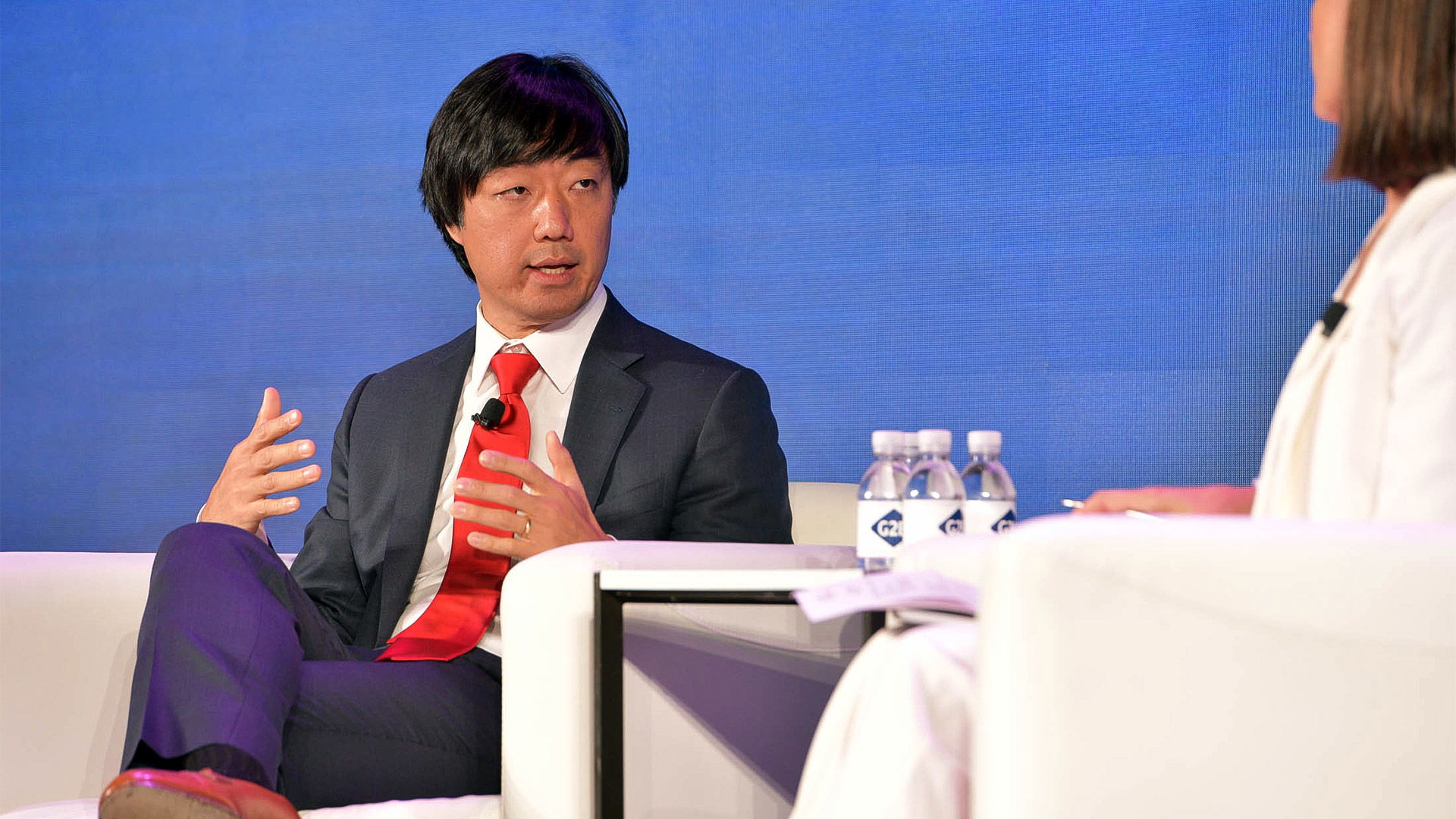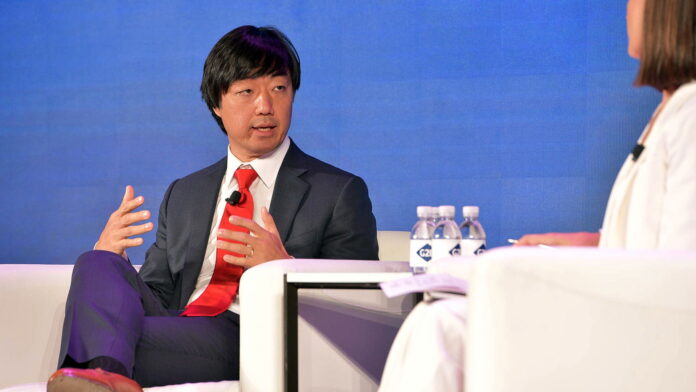
As legislative efforts to legalize online casinos stall in states across the U.S., Bally’s Chairman Soo Kim is suggesting a more incremental approach, focusing on legalizing live dealer casino games like blackjack and roulette with human dealers streamed online as a stepping stone to broader online casino operations.
Kim believes this approach, starting with live dealer games alone, could sway lawmakers who have reservations about fully regulated online gaming, reports PlayUSA. “Why not just live dealers? I actually think live dealer can be an interesting solution in a lot of places,” Kim suggested.
“It’s like a half step. We don’t have to do iSlots yet because, with iSlots, there are a lot of people fighting over it. That’s why I’m like, ‘Hey guys, instead of fighting over iSlots, why don’t we try to get live dealer?’ I bet you there will be very little resistance,” he added.
Live dealer casino games, which mimic the experience of traditional brick-and-mortar casinos, offer a tangible human element that some lawmakers could find appealing, as they can create in-state jobs. Dealers are visible to players online, dealing cards or rolling dice in real-time, giving an interactive gaming experience without relying solely on algorithms.
This strategy of prioritizing live dealer legalization has already been implemented in states like Rhode Island, where Bally’s holds a monopoly on gaming. There, the state only permits live dealer table games to be streamed online from Bally Casino Twin River Lincoln, prioritizing local employment in the gaming sector.
“In Rhode Island, the regulators felt really good about live dealer. They liked that we’re still employing people in the state and it had fewer constitutional questions,” Kim pointed out.
While full-scale iGaming in the U.S. includes both slots and table games, some states have faced significant opposition due to concerns over job losses and competition with traditional gaming. In states such as Maryland and New York, concerns over job cannibalization have blocked online casino expansion, even though live dealer games could potentially create jobs without jeopardizing brick-and-mortar casinos.
The proposal of legalizing only live dealers also seems to appeal to industry players outside of Bally’s. Charmaine Hogan, head of regulatory affairs at Playtech, noted that live dealer games could help ease the transition to online gaming while mitigating the fears of cannibalization.
“Live dealer casino is a pivotal element of the iGaming industry, offering players an immersive experience that combines the ambiance of traditional casinos with the convenience of online platforms,” she said.
Even so, there is some skepticism about whether a live dealer-only focus would expedite legalization. Howard Glaser, head of government affairs at gaming supplier Light & Wonder, voiced concerns that the potential tax revenue might not be enough to garner legislative support.
“Even in states where live dealer is robust, 80% of revenue is still from slots,” Glaser pointed out. “Passing part of gaming legislation has as many hurdles as passing a larger gaming bill.”
In Illinois, where video gaming terminals (VGTs) have become a significant revenue source, state Rep. Edgar Gonzalez sees a live dealer model as a possible way forward. Gonzalez believes table games could gain more acceptance than online slots due to VGT operators’ concerns about competition.
“Table games I think are easier to sell to legislators than slots. Because of the reticence of some VGT folks when we look at iGaming as a whole, maybe we legalize blackjack and poker on the phone and see how that goes,” Gonzalez told PlayUSA.
Meanwhile, in New York, Sen. Joe Addabbo, who has championed online gaming, tried to garner support for iGaming with live dealers and a job-protection fund earlier this year. However, Addabbo faced resistance from influential unions. Unless Gov. Kathy Hochul includes online casinos in her executive budget next year, a full online casino bill may not move forward.
Kim suggested that focusing on live dealer legislation, which already employs unionized labor in Rhode Island, could be an approach worth trying in New York as well.
Despite the potential challenges, Kim remains optimistic that a live dealer-first approach could break the gridlock that has slowed online casino expansion in the U.S.
Original article: https://www.yogonet.com/international/noticias/2024/11/07/84541-ballys-chairman-proposes-live-dealeronly-model-to-ease-online-casino-legalization-in-2025














